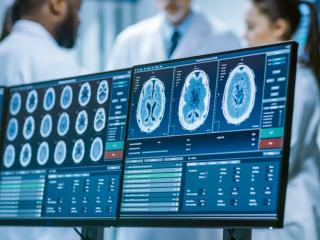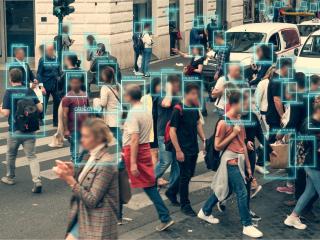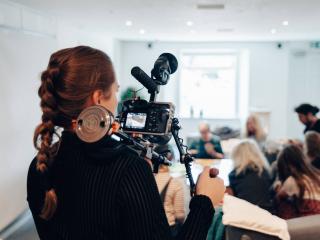AI in Machine Translations, the Labour Market and Education
On Thursday, March 18, 2021, the second edition of the TAISIG Talks took place. TAISIG is the Tilburg University Artificial Intelligence Special Interest Group: a research community committed to Artificial Intelligence (AI). Eva Vanmassenhove, Patricia Prüfer and Max Louwerse shared their insights.
That’s what she said
The first speaker of the evening, dr. Eva Vanmassenhove, is an expert in natural language processing with focus on machine translation. In her lecture, she addressed the problem of algorithmic bias in automatic translations of gender based on big data. Some natural languages, e.g., Bulgarian, use different morphological forms to express grammatical gender in adjectives, demonstratives and verbs, while others would exhibit a highly limited use of linguistic gender (e.g., English). Translating from the second kind of language to the first can amplify social biases by producing gender biased output and also lead to a loss of linguistic richness. A possible solution lies in the addition of metadata coding for gender information. So hopefully in the future, we will be able to know for sure whether it was what she said or what he said.
Skill based job transitions
The second talk was presented by dr. Patricia Prüfer, Head of the Data Science Unit at CentERdata. Together with her team, Patricia conducts research on skill-based job transitions. Technological advances combined with the effects of the COVID-19 pandemic brought about a great deal of uncertainty on the job market. While in some sectors, such as hospitality, unemployment has been growing, other sectors are thriving and in need of qualified employees. To solve this problem, Patricia’s data science team developed a matching tool that looks for “good-fit” job transitions based on the desired skills set. The good news is that on average, any given job position can be substituted with 33 others, of which almost half include an increase in salary.
Let’s improve our education
Professor Max Louwerse kicked off his talk with the confession that he has been struggling with the traditional education system for many years. The considerable progress of our society over the last centuries has brought about few changes in how students are being taught in classrooms and outside all over the world. A telling example is the practice of rereading texts, highlighting and taking notes, despite the fact that it can be detrimental to the learning process as demonstrated by scientific research. Max and his team are involved in a number of projects where the process of learning is turned into a personalized interactive experience supported by intelligent tutoring systems, virtual reality, serious gaming and machine learning. Some of these projects take place in the DAF Technology Lab on the campus of Tilburg University, an advanced mixed reality lab that offers state-of-the-art equipment for both research and educational purposes.



